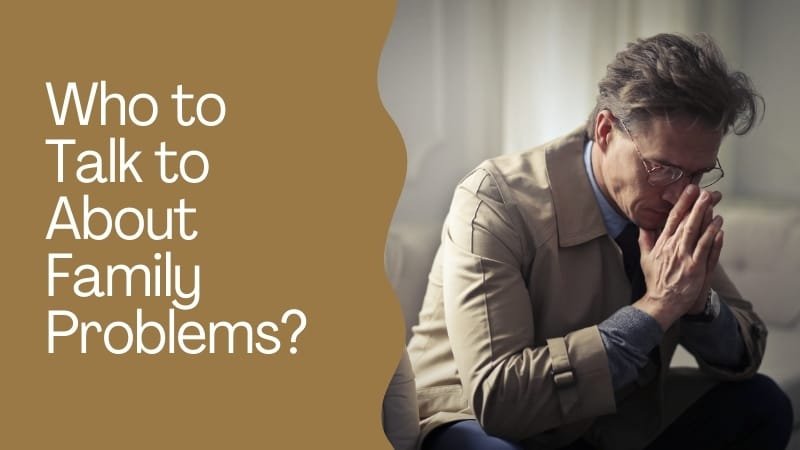When you’re experiencing family problems, it can be difficult to know who to turn to. The best step is to talk to a licensed mental health professional who specializes in family dynamics. Here are the most effective options:
1. Family Therapist or Marriage and Family Therapist (LMFT)
A licensed family therapist is trained to help families understand patterns of conflict, improve communication, and resolve emotional struggles. They often work with the entire family or specific members to create healthy, functional relationships.
Best for: Long-standing conflicts, communication issues, parenting challenges, blended family struggles
2. Clinical Psychologist or Counselor
Psychologists and counselors can help individuals and families manage emotional stress, trauma, or anxiety resulting from family conflict. They offer coping strategies, behavior management techniques, and emotional support.
Best for: Mental health concerns linked to family stress, emotional distress, or unresolved trauma
3. Social Workers or Community Mental Health Providers
Licensed clinical social workers (LCSWs) often provide therapy and case management. They may connect you with family support programs, housing help, or child welfare resources.
Best for: Complex family issues involving legal, financial, or child welfare concerns
4. Primary Care Provider (PCP)
Your doctor can be a good starting point. They can screen for emotional distress, listen to your concerns, and refer you to trusted mental health professionals.
Best for: First step when unsure where to begin
5. Support Groups and Helplines
Sometimes, speaking with others who have experienced similar issues can provide comfort and practical advice. National and local organizations often host support groups, both online and in person. Crisis lines are also available for urgent emotional support.
Best for: Peer support, immediate help, or crisis intervention
Signs You Should Talk to a Professional
- Constant family arguments or breakdown in communication
- Emotional stress affecting your health, sleep, or daily functioning
- Concerns about a child’s behavior or emotional wellbeing
- Blended family adjustment issues
- Situations involving trauma, abuse, or addiction
You’re Not Alone
Family issues are common, and seeking help is a sign of strength—not failure. Mental health professionals can offer tools, guidance, and a safe space to work through difficult moments. Early support often prevents deeper problems later.


